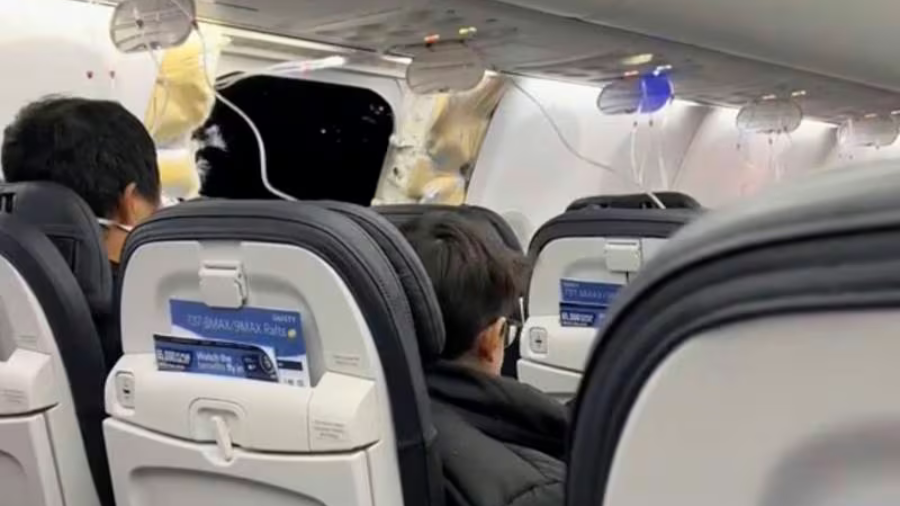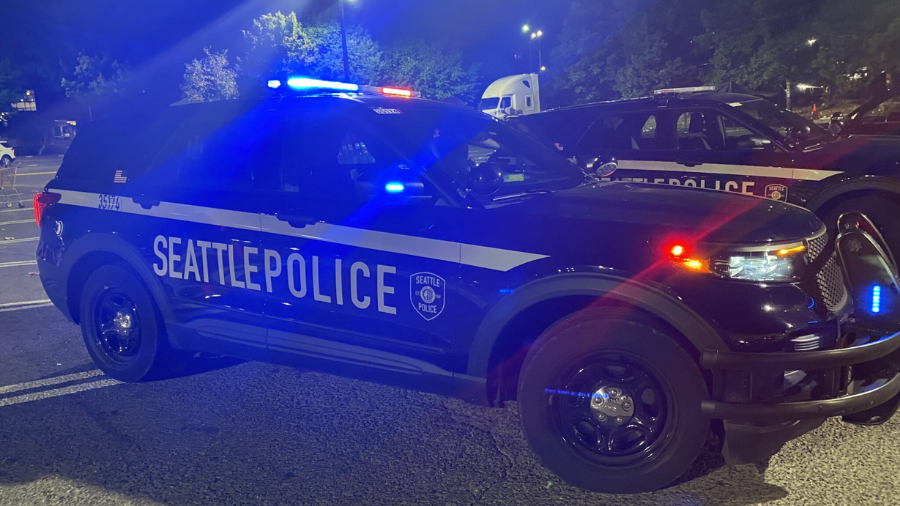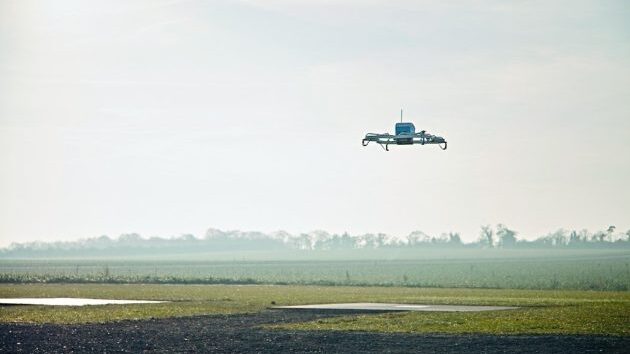Deadly Dives – The push for commercial diving regulations
Mar 24, 2013, 5:37 PM | Updated: Mar 25, 2013, 9:28 am

Commercial divers are dying at a rate that is 40 times greater than all other workers, according to the Centers for Disease Control and Prevention. But, because divers are listed as a "non-hazardous" work group there are no formal regulations. (Photo courtesy Diver's Institute of Technology, Seattle)
(Photo courtesy Diver's Institute of Technology, Seattle)
Peter Pilkington lost his house, his business, his marriage and about a million dollars in the effort to prove his son wasn’t responsible for his own death in an oil-rig diving accident.
He was right. But 17 years later the U.S. Coast Guard still has not adopted safety regulations for the commercial diving industry.
It was March 4, 1996 when Brian Pilkington got the call to help inspect an oil rig off the coast of Texas. The University Prep and Diver’s Institute of Technology grad had moved from Bellevue to Houston, the center of the commercial diving industry in America.
“It was one of those days when kinda everything went wrong,” Peter Pilkington recalled.
Five divers were scheduled to be on the job that day. Only Brian and another guy showed up to meet a diving supervisor they’d never worked with before. While he’s normally the tender, that day, Brian’s job was diving.
“He was supposed to be the guy who supplies the air and runs the compressor. He was 23 at the time, assumed that this was an opportunity for him to get in the water,” Pilkington says. “Brian was a trained diver but the normal sequence is you work as a tender for three, four, five, even 10 years before you do any serious diving.”
Pilkington was under 28 feet of water, placing testing instruments on an oil rig so that measurements could be sent back to the surface.
The crew at the surface noticed pressure gauges on the air compressor supplying Pilkington dropped from 150 pounds per square inch to as little as 80 to 90 pounds per square inch.
“During the dive, Brian called to the surface and told them he was having difficulty breathing. They asked him to check his fittings. He was incoherent for a while,” says Pilkington.
The Coast Guard had already left the site. There was no backup equipment, no backup air line, no extra scuba tanks and no one available to help Brian under water.
“I was living in Bellevue, knew nothing about what was going on, and I was driving my then 8-year-old daughter from dance lessons,” Pilkington says. “She stopped talking and she just stared straight ahead and she said, ‘I’m never going to go in the water again. It’s dark down there and you could die.'”
His daughter went to her room and closed the door when they got home. Pilkington found out minutes later that Brian had been in some kind of accident and was at a hospital.
“By the time we reached the airport he died,” Pilkington says, fighting back tears as if this accident happened yesterday.
An initial investigation concluded that Brian was to blame for his death because he panicked when water entered his diving helmet through fittings he had failed to tighten.
“They told me the reason that they knew that he had screwed up is because he had called to the surface and told them over the intercom system that he had screwed up. That’s not what he said, but that’s what they said he said. It was a little bit more profane. I knew that was a lie,” Pilkington says.
“Brian was very quiet. He never would have told anybody he made a mistake. He would have tried to fix it. He wouldn’t have told anybody, so I didn’t believe it.”
Pilkington launched his own extensive investigation to vindicate his son and to make sure that other divers could work under safer conditions.
This was a bigger problem than just my son
“There were commercial divers dying at the rate of three a month, average, in the United States. And yet, there’s no requirement to be a commercial diver other than you show up one day and say I’m a commercial diver. There’s no test. There’s no logs required,” Pilkington says.
“To be a recreational diver you have to have a card and you can’t buy air without it, and you can’t buy equipment without your certification. In all fairness, most commercial drivers are well trained. But there’s a lot who aren’t, as we were to find out. Brian’s diving supervisor that day, his only training was a five-day course at the YMCA.”
It took five years, and three formal investigations before the Coast Guard concluded that Brian wasn’t at fault.
Poor maintenance of a generator – that was later destroyed in a cover up – caused the accident.
A shop rag, used as a filter, got sucked into the compressor and burned. That sent smoke and carbon monoxide into Brian’s helmet. He passed out, falling face first into water that entered his helmet.
“I guess I should have walked away thinking that was the win, because in it, it said that Brian Pilkington’s only culpability in is death was going to work on March 4th.”
He wouldn’t let it go.
“I started because I just wanted to clear his name, and probably would have been content had it been an isolated incident. But then I was finding that there were hundreds of them. It’s all the same thing, it’s all human error, equipment error and they all got covered up,” he says.
In the wake of the accident, the Coast Guard instituted a five-day training program for commercial diving investigators and inspectors.
It also recommended 24 specific actions, including better record keeping of dives, safety inspections of equipment and establishing emergency evacuation plans.
“After I basically got the Coast Guard to agree that they would rewrite their regulations, we all know what happened on September 11, the same year. The Coast Guard was taken out from under the wing of the United States Department of Transportation and was put under Homeland Security and everything that we had done was lost,” Pilkington says. “They never enacted any regulations. They never changed anything.”
Washington state had 370 commercial diving violations in six months
“We know who the good companies are and who the bad ones are. I have companies I do not want our kids to go to work for, simply because they do not follow any kind of code,” says John Paul Johnston, executive director of the Diver’s Institute of Technology in Seattle.
“The Coast Guard is pretty overburdened since 9/11. Their budgets haven’t grown significantly, but the offshore industry has grown a good bit,” Johnston says. “OSHA (Occupational Safety and Health Administration) same problem. Here in the State of Washington the code that regulates commercial diving in this state, the last time it was touched was 1974.”
Earlier this year, the Washington State Department of Natural Resources was fined $172,000 for 15 worker-safety violations following death of a DNR diver last summer off Bainbridge Island.
The deceased diver, 24-year-old David Scheinost, was with a four-person dive team from the DNR Aquatic Resources Division collecting geoduck samples to test for paralytic shellfish poisoning.
The victim surfaced in distress and called out that he couldn’t breathe. The others were unable to reach him before he slipped below the surface and was gone. His body was found three days later.
A state Department of Labor and Industries investigation found 370 occurrences over a six-month period in which divers were deployed without carrying a reserve breathing-gas supply.
The violations, reported on January 11, 2013, were deemed “willful” and “serious.”
Commercial divers are dying at a rate that is 40 times greater than all other workers, according to the Centers for Disease Control and Prevention. But, because divers are listed as a “non-hazardous” work group there are no formal regulations.
There are between 5,500 and 7,500 commercial divers working at any given time in the U.S. which isn’t a large number compared with other professions. That’s part of the reason there isn’t a public outcry demanding safety improvements and standards in the industry.
There seems to be only one Seattle father pushing for change.
“Was it foolish to do what I have done? Probably was, but I’ve also gotten to the point where I’d like to see it come to some conclusion,” Pilkington says. “I don’t know that it ever will.”
By LINDA THOMAS












